Moral Theology & Christian Ethics
Moral theology/Christian ethics is that branch of theological inquiry that studies in a systematic way the practical implications of God's revelatory intervention in Jesus Christ. It is concerned with the kind of people we ought to be and the kinds of actions we ought to perform or avoid. In pursuing its task, moral theology must draw upon every available source of understanding: scripture, tradition, relevant human sciences (such as psychology, sociology, economics), and human reason.
“What difference can faith make for morality when people today recognize that people of various or no faith can live a virtuous, honorable, moral life?”
— William Mattison, Associate Professor of Theology
Therefore, any adequate study of moral theology, in elaborating "the nobility of the Christian vocation of the faithful and their obligation to bring forth fruit in charity for the life of the world" (Vatican II, Decree on Priestly Formation, 16), must be not only "thoroughly nourished by scriptural teaching," but also broadly interdisciplinary. Furthermore, it will take ecumenism seriously because it is clear that what the Spirit works in the hearts of others "can contribute to our own edification" (Vatican II, Decree on Ecumenism, 4).
At Notre Dame, the doctoral program in moral theology responds to these broad mandates in several ways. It studies a number of subdisciplines, including social, medical, and foundational ethics. The program encourages interaction with philosophical ethics. While the program concentrates on the Roman Catholic tradition, it engages and is open to a variety of traditions. It demands course work outside of the field of moral theology (e.g., systematic theology, scripture).
Faculty
-

David Clairmont
Associate Professor
Moral Theology/Christian Ethics | Ethics and Spirituality, Theology and Business Ethics, Comparative Religious Ethics | Clairmont studies comparative religious ethics, particularly the moral thought of Roman Catholicism and Theravada Buddhism, issues of method in Catholic moral theology, and the connection between ethics and spirituality. He is interested in questions of moral formation, inter-cultural dialogue in the Church, and the history of Christian spirituality (especially the Benedictine and Franciscan traditions). He is co-editor (with Don S. Browning) of American Religions and the Family: How Faith Traditions Cope with Modernization (Columbia University Press, 2007) and author of Moral Struggle and Religious Ethics: On the Person as Classic in Comparative Theological Contexts (Wiley-Blackwell, 2011). His articles have appeared in the Journal of the Society of Christian Ethics, the Journal of the American Academy of Religion, the Journal of Religious Ethics, and the Journal of Moral Theology. His current projects include an introduction to comparative religious ethics (with William Schweiker) tentatively titled Religious Ethics: Meaning and Method, the co-edited Encyclopedia of Religious Ethics (with William Schweiker, Maria Antonaccio, and Elizabeth Bucar), a book on the religious ethics of Thomas Merton, and a book on theology and business ethics tentatively titled Love and Accounting.
-
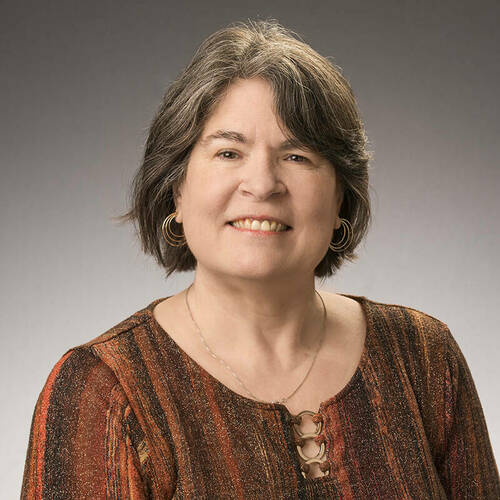
Mary Hirschfeld
Associate Professor
Moral Theology/Christian Ethics |Economics and theology |Mary Hirschfeld works on the boundaries between theology and economics using an approach rooted in the thought of St. Thomas Aquinas. She has written on economic inequality, the technocratic paradigm, the financial crisis and the common good.
-
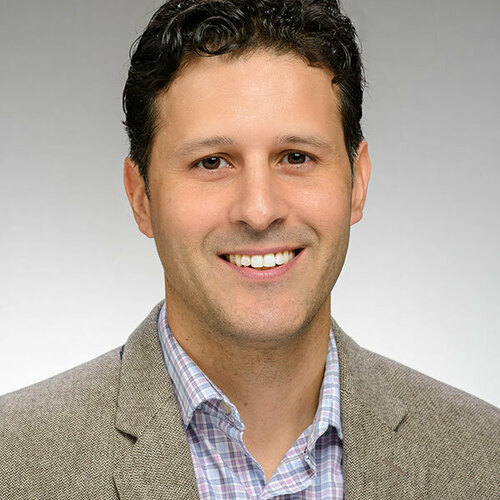
David Lantigua
Associate Professor
Moral Theology/Christian Ethics, World Religions and World Church |Modern Catholic social tradition; Spanish scholastic moral, legal, and political thought; human rights and social movements; Latin American theology and Indigenous cultures; (neo)colonialism and history of international law; comparative religious ethics |Born of Latino immigrants, Prof. Lantigua graduated with a Ph.D. in Theology from the University of Notre Dame. He taught previously at The Catholic University of America, and has been a graduate fellow of the Notre Dame Institute for Advanced Study and past recipient of the Louisville Institute Sabbatical Research Grant. He previously served as Co-Director of the Catholic Social Tradition minor in the Center for Social Concerns. He is currently the William W. and Anna Jean Cushwa Co-Director of the Cushwa Center for the Study of American Catholicism.Prof. Lantigua teaches undergraduate courses on God and Slavery in the Americas and Catholic Social Teaching. He has served on exam and dissertation committees for graduate students in the areas of Moral Theology, History of Christianity, World Religions and World Church, and the Departments of Political Science and History. Prof. Lantigua is currently writing a monograph on the Latin American theological and cultural dimensions of Pope Francis’s social teachings and its implications for global Catholicism in the twenty-first century.Aside from spending time in the Florida sunshine with family, he enjoys playing fútbol with his children and cheering for the US and Paraguayan (and Argentine) national teams.
-

William C. Mattison III
Wilsey Professor of Theology
Moral Theology/Christian Ethics |Fundamental Moral Theology, Virtue, St. Thomas Aquinas, Scripture and Ethics |Prof. Mattison completed his doctoral studies at the University of Notre Dame. During these years he studied Thomistic moral theology under Dr. Jean Porter, and spent a year on a Fulbright Fellowship in Fribourg, Switzerland doing dissertation research under the guidance of Fr. Servais Pinckaers, O.P. He then spent two years as a Visiting Assistant professor at Notre Dame, and another two at Mount St. Mary's University in Emmitsburg, MD before joining the faculty at the Catholic University of America’s School of Theology & Religious Studies.Prof. Mattison spent ten years at The Catholic University of America. After tenure he served as Associate Dean for Undergraduate Studies, and one year as Interim Dean of the School of Theology and Religious Studies. He also began to write and speak on Catholic higher education. He returned to Notre Dame in 2016 with a joint appointment as Wilsey Family Associate Professor in the Department of Theology as well as Senior Advisor for Theological Formation in the Alliance for Catholic Education, where he helped prepare Catholic school teachers.Prof. Mattison is now the Wilsey Professor of Theology, and he continues to write and to teach students at the doctoral, Masters (including seminarians), and undergraduate levels. He was also named in 2023 the Faculty Director of the Moreau First Year Experience, leading the reconception and implementation of the Moreau seminars, part of the Core Curriculum for all Notre Dame undergraduates. Besides having served in leadership roles in the Ethics and Catholic Theology Group and Moral Theology Groups at the Society of Christian Ethics and Catholic Theological Society of America, respectively, Prof. Mattison co-founded and served as Executive Director of the annual New Wine, New Wineskins symposium for pre-tenure Catholic moral theologians.
-

Gerald McKenny
Walter Professor of Theology
Moral Theology/Christian Ethics | Natural and Revealed law, the Decalogue and Christian ethics | McKenny teaches and writes on Christian ethics and the ethics of biotechnology. He is the author of To Relieve the Human Condition (SUNY Press, 1997), The Analogy of Grace: Karl Barth’s Moral Theology (Oxford University Press, 2010), and Biotechnology, Human Nature and Christian Ethics (Cambridge University Press, 2018) along with about fifty articles and book chapters in Christian ethics, biomedical ethics, the ethics of biotechnology, religious ethics, and the philosophy of medicine. He is co-editor of four books, including The Ethical (Blackwell, 2003), Altering Nature (two volumes) (Springer, 2008), and Darwin in the Twenty-first Century (Notre Dame, 2015). He is currently finishing a second book on Karl Barth's ethics and has begun work on a one-volume Christian ethics based on the Gospel story of the rich young ruler.
-
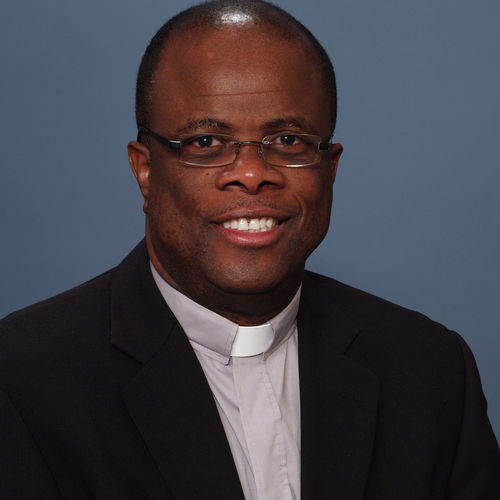
Paulinus I. Odozor, C.S.Sp.
Professor
Moral Theology/Christian Ethics, World Religions and World Church | Working on projects relating to sex and sexuality in an ecumenical age; working on projects about virtues in Africa, etc | Paulinus Ikechukwu Odozor, C.S.Sp., is a priest of the Congregation of the Holy Spirit (Spiritans). He received his initial formation in Nigeria and did his graduate studies at St Michaels College, Toronto, Regis College, Toronto, and the University of Toronto. Odozor's scholarly interests are in Foundational issues in Christian ethics; history of Catholic moral theology; contextual theological issues, including questions pertaining to inculturation; theology and society; African Christian theology; and the theology of marriage. Fr, Odozor is also an Africanist with interest in African history, African literature, African politics and questions relating to change and contemporary African societies. In addition to being the author of many articles in peer-reviewed publications in Africa, Asia, Europe, and North America, Fr Odozor has also authored or edited nine books. Fr. Odozor held numerous academic, administrative, and pastoral positions in Nigeria and Canada. He was president of the Governing Council of Spiritan International School of Theology in Enugu, Nigeria(2005-2017) and was appointed by Pope Benedict XVI as expert assistant to the 2009 Synod of Bishops for Africa.
-

Margaret Pfeil
Teaching Professor
Moral Theology/Christian Ethics | Catholic Social Teaching, Racial Justice, Nonviolence, Ecological Ethics, Ecumenism | Dr. Margaret R. Pfeil holds a joint appointment in the Department of Theology and the Center for Social Concerns at the University of Notre Dame and is a Faculty Fellow of the Kroc Institute for International Peace Studies and the Klau Center for Civil and Human Rights. She is a founder and resident of the St. Peter Claver Catholic Worker Community in South Bend, Indiana.
-
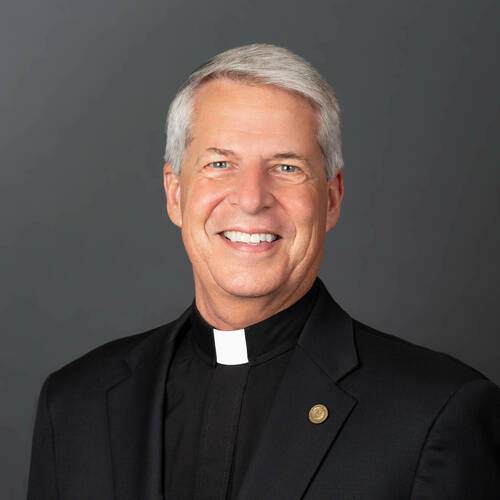
Mark L. Poorman, C.S.C.
Associate Professor
Moral Theology/Christian Ethics |Moral Theology and Pastoral Practice; Applied Christian Ethics |Father Poorman returned to the Theology Department as Associate Professor of Theology after serving full-time in senior-level administrative positions in Holy Cross institutions, including Vice President for Student Affairs at the University of Notre Dame, as well as Executive Vice President and President at the University of Portland. During his administrative service he continued teaching undergraduate moral theology courses in character formation, virtue ethics, and applied Christian ethics in the areas of sexuality, Catholic health care, and justice issues. He has also served as Director of the Master of Divinity program for the Department. In addition to his administrative responsibilities, he has been a member of numerous governing boards in Catholic higher education and health care institutions. As part of his pastoral service in the Congregation of Holy Cross, he resided in undergraduate residence halls and continues to minister in the residential mission of Holy Cross at Notre Dame. His academic interests lie in the intersection of moral theology and pastoral practice, with past publications in that theoretical area, as well as the mission of Catholic higher education, models for theological reflection in ministry education, and ethical issues in end-of-life care and decision-making.
-

Jean Porter
John A. O'Brien Professor of Theology
Moral Theology/Christian Ethics | Aquinas' virtue theory, theories of life | Jean Porter is the author of numerous articles and six books on the history of the Christian moral tradition and its contemporary relevance. She has a particular interest in the moral theology of Aquinas and his scholastic predecessors and contemporaries.
-

Maura Ryan
John Cardinal O'Hara, C.S.C. Associate Professor of Theology
Moral Theology/Christian Ethics | Health, development and human rights in Christian bioethics |Maura Ryan is the John Cardinal O’Hara, C.S.C. Associate Professor of Christian Ethics at the University of Notre Dame. Ryan's primary interests are in the areas of bioethics and health policy, women’s health and development, and Catholic Social Teaching. She is the editor of two volumes in social and medical ethics and her book Ethics and Economics of Assisted Reproduction: The Cost of Longing was published by Georgetown University Press in 2001. Her articles have appeared in the Hastings Center Report, Theological Studies, The Journal of Philosophy and Medicine, Signs, The Journal of Catholic Social Thought and Environmental Health Perspectives. She has served on the Board of Directors for the Society of Christian Ethics, the editorial boards of Religious Studies Review and Ethics and Behavior, the St. Joseph County Healthcare Advisory Consortium and the ethics committee for Hospice of St. Joseph County. Ryan served as Associate Provost at Notre Dame 2001-2004; Associate Dean for the Humanities and Faculty Affairs in the College of Arts and Letters 2008-2015; and currently serves as Vice President and Associate Provost for Faculty Affairs.
-
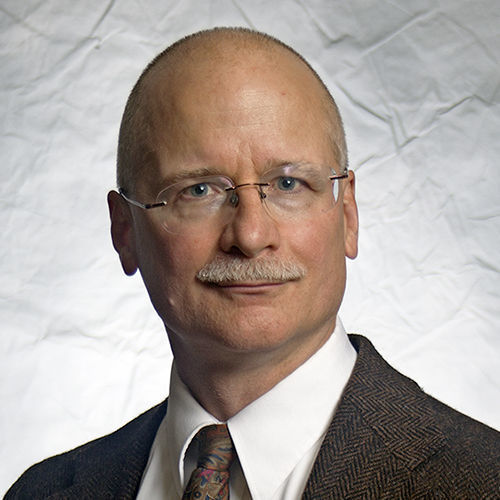
Todd Whitmore
Associate Professor
Moral Theology/Christian Ethics, World Religions and World Church | Theology and Ethnography; Social theory; the Opioid Crisis | Professor Whitmore uses ethnographic methods to raise theological questions. From 2005-2013, this took him to war and post-conflict zones in northern Uganda and South Sudan, leading to his book, Imitating Christ in Magwi: An Anthropological Theology (Bloomsbury/T&T Clark, December 2018). Anthropological theology turns traditional “theological anthropology” on its head, with the conviction that any account of “the person” must be richly informed by accounts of how persons in fact live. His work has led to him being appointed as Concurrent Associate Professor in the Anthropology Department. Currently Professor Whitmore’s work is local, where he serves as a Certified Addiction Peer Recovery Coach for persons with methamphetamine and opioid addictions in northern Indiana. His research asks how Christianity, race, and class work in the construction of public ideas of who counts as an addict. In doing “grounded” theology, Professor Whitmore believes that theologians should serve the marginalized by more than writing books. In Uganda in 2008, he co-founded, based on Catholic social teaching, a non-profit that combined agricultural training and peacebuilding. In 2018 he wrote a successful grant to train addiction recovery coaches to work in the local hospital emergency room to help those recovering from overdoses to maintain ongoing sobriety.